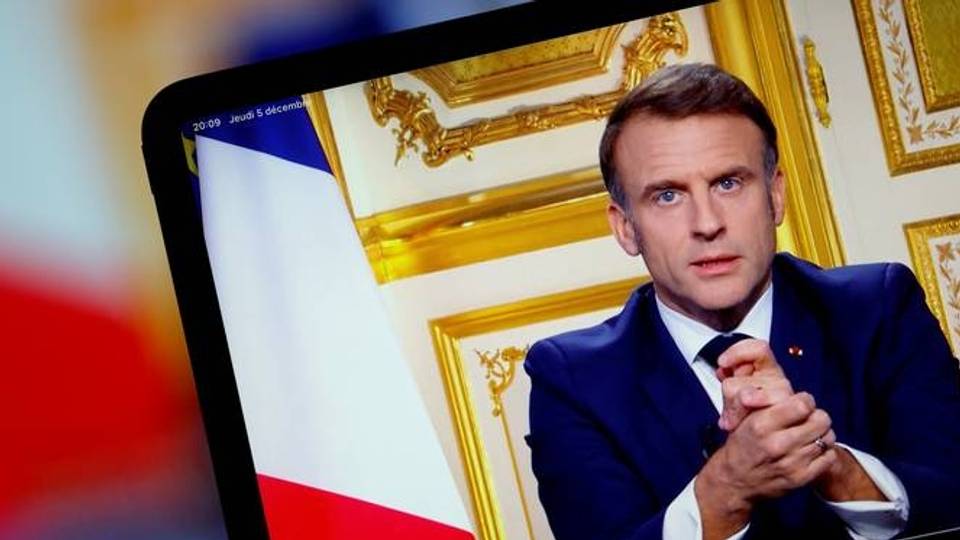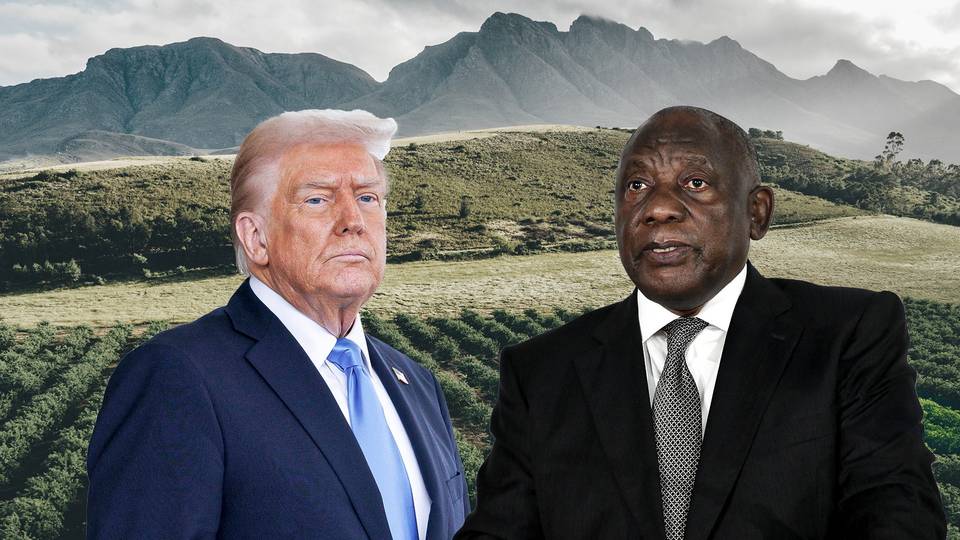Sport
Dollar
42,8361
0.04 %Euro
50,6403
0.53 %Gram Gold
6.136,1100
0.43 %Quarter Gold
10.205,2300
2.31 %Silver
95,9500
1.16 %France faces its worst political crisis in years after a no-confidence vote toppled the government. The president must quickly appoint a new PM to navigate a fragmented Parliament and restore stability.

France plunged into political instability last week after a no-confidence vote toppled the government for the first time since 1962, less than three months after Prime Minister Michel Barnier took office.
His minority coalition was defeated by the combined votes of the Far Right and the Left, leaving President Emmanuel Macron with the worst political crisis since the populist Yellow Vest protests in 2018.
He is now facing the daunting task of appointing his fourth Prime Minister of 2024, with a deeply fragmented National Assembly and new elections impossible until the summer.
What happened?
Barnier's task was to pass his proposed budget for 2025, which sought to reduce France's widening public deficit through a mix of spending cuts and tax rises. After weeks of deadlock, Barnier attempted to push through a social security bill without Parliament's approval.
However, the provision he used, article 49.3 of the Constitution, was negated by a no-confidence motion. A majority of 331 MPs voted last Wednesday night to oust the government, ending Barnier's tenure on the spot.
The fall of the government did not come as a surprise. Macron's disastrous decision to dissolve Parliament in June, following a humiliating defeat for his centrist coalition in the European Parliament election, left France with a National Assembly divided into three opposing blocs with no absolute majority.
Macron chose to appoint Barnier to lead a frail coalition of centrist and conservative MPs that was propped up by Marine Le Pen's Far Right, who initially opted for tacit support. She effectively became a kingmaker, holding the power of life and death over his government.
Despite Barnier trying his best to placate her, Le Pen pulled the plug last week, sealing his fate. Macron's gamble on her support spectacularly failed when she decided to stay true to her roots, satisfying her electorate by demonstrating that she remained anti-system with no intention of helping Macron out.
What are the consequences?
Barnier's government has stayed on in a caretaker capacity, handling day-to-day business until a new government is appointed. However, his fall is not without any consequences.
Politically speaking, Macron's second mandate lies in tatters, his power and stature fast evaporating. He is paying the price for a botched dissolution that nobody understood, and he is now facing growing calls to resign.
Although nothing in the constitution can force him out, a long-drawn-out instability will make his position increasingly precarious. More generally, the current political turmoil is bound to increase the already high level of diffidence against all politicians in France.
With only 14 percent of the French electorate holding trust in their political parties and 82 percent worried about the consequences of the fall of the Barnier government, this lack of trust will only be exacerbated if a new government is not appointed soon.
As far as the budget is concerned, emergency legislation can be passed to carry the 2024 budget over to 2025. Although a temporary solution, any fear over a United States-style government shutdown should be assuaged.

The real issue is the impact a period of political uncertainty could have on the financial markets and the economy. Interest rates on French bonds rose in the run-up to the vote of non-confidence, even briefly exceeding those of Greece, a country usually considered riskier.
While they have remained stable since Barnier's fall, the longer the deadlock is, the more jittery the bond market is likely to be, with a deleterious impact on French finances. The main risk, however, is for France to enter a doom loop, with uncertainty dampening consumers' spending, derailing business investments and puncturing growth.
Political instability in France is also bound to affect the European Union. With Germany already reeling from the implosion of its coalition government, the situation in France is likely to weaken the EU's ability to move forward, including withstanding the pressure from the incoming administration of US President-elect Donald Trump.
Macron may have always strived to push the EU towards greater unity, but his voice is increasingly drowned out, as evidenced by the EU Commission forging ahead with the Mercosur trade agreement with four Latin American countries, despite Paris' opposition.
What happens next?
Macron addressed the French nation last Thursday. After taking the gloves off to blame the crisis on an anti-Republican front and defiantly stating that he would not resign, he announced that a new government of national interest would be appointed shortly.
Notably, Macron does not have the luxury of time if he wants to fend off rising calls for his resignation.
He now has the daunting mission of finding a viable prime minister who is capable of avoiding another motion of no-confidence in a National Assembly that remains bitterly divided and cannot be dissolved until July.
He has to decide whether to keep Marine Le Pen onside by appointing another centrist or conservative figure or neutralise her by turning to the Left.
Appointing a PM from the Left or, at the very least, striking a non-aggression and non-censure pact with this bloc for a centrist-led government, would reflect a respect for the July election results.
The next few days will tell us whether France is heading towards a political meltdown, with potentially drastic economic consequences, or whether Macron can steady the ship and avoid his presidency deteriorating further.
The next few days will tell us whether France is heading towards a political meltdown, with potentially drastic economic consequences, or whether Macron can steady the ship and avoid his presidency deteriorating further.
During these, the Left won the largest number of seats, albeit far from an absolute majority, and the Far-Right was defeated by a Republican front. Doing so, however, would require mutual concessions and compromises.
On Tuesday, Macron gathered all parties, except the Far Right and the hard Left, to find a way forward. He committed himself to appointing a new PM within 48 hours and reportedly stated his desire not to wield any power to Marine Le Pen.
If a deal can be reached, France could find itself on more stable ground, at least for a while. If, however, all parties refuse to compromise, his last resort will have to be a technical government, tasked with the sole objective of providing France with a proper budget until Parliament can be dissolved again.
The next few days will tell us whether France is heading towards a political meltdown, with potentially drastic economic consequences, or whether Macron can steady the ship and avoid his presidency deteriorating further to the point where his only choice would be his own ignominious resignation.
The author, Ariane Bogain is a Senior Lecturer in French and International Relations at Northumbria University (Newcastle, UK).
Comments
No comments Yet




















Comment